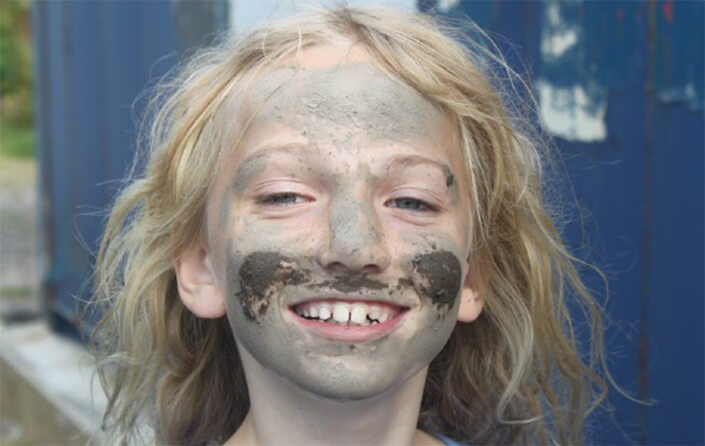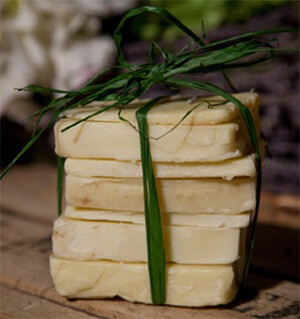
This organ, our skin, is constantly working and has many functions:
It is a protective barrier
Our skin is the protective,
waterproof barrier that helps
preserve our internal fluids
and organs. This barrier has
to put up with, environmental
toxins and pollutants,
harmful bacteria, viruses,
parasites, pathogens,
antigens and UV radiation
attacking it, and what we
apply to it, be it soap, lotions
gels, natural or laden with
chemicals.
It removes waste
Our skin pores expel waste
through sweet glands giving
the body an opportunity to
get rid of toxins and helps
prevent chemical and waste
build-up. Pores that are
congested and blocked with
chemicals and pollutants
prevent skin from functioning
as it should and those toxins
remain in the body As the
epidermal layer continuously
sheds this aids removal of
pathogens. Excellent
hygiene helps the epidermal
shedding, ensuring that your
skin can function properly to
remove pathogens.
As our skin absorbs what we put on it, its transportation system can also be used to administer medicines.

Regulates Heat
Our skin is the body's natural
heating and air conditioning
system. It regulates our
temperature, preventing over
heating and or freezing by
maintaining consistent inner
body temperature regardless of
the outside temperature. In
cold weather, skin constricts
and forms goose bumps; small
hairs raise to trap the warmth
emanating from our bodies,
conserving our energy. In the
heat, our skin relaxes and we
perspire, sweat flows freely
through our pores. Evaporation
of sweat (changing from a
liquid to a gas) absorbs heat
energy the process cooling the
surface of our skin.
A diagnostic tool
The skin is a barometer for
overall health. Early warning
signs of many diseases
manifest themselves on the
skin, providing practitioners
with invaluable diagnostic
information. Mood, Physical
state and attractiveness can all
be assess with our skin.
Produces Vitamin D
Vitamin D is vital to our
immune system. With proper
sun exposure, skin plays a
large role in manufacturing
Vitamin D.
Our Skin...
...is the largest organ in our body & our first line of defence.
What we administer to our skin is as important as what we eat for the health and wellbeing of our bodies. Our skin is porous; 60% of chemicals that come into contact with the skin transfer into the bloody stream. Look at the ingredients of all the products you use that come into contact with your skin.
The first step to achieve healthy skin is to understand the role of our skin and the importance it has on our overall health. The health of our skin effects our physical and emotional state.
"Your whole body functions more smoothly when your skin doesn't have to fight to perform its natural function."

Our Skin holds our bodies together, guarding our bodies from the outside world and environmental pathogens. It is our protective covering, the first barrier to fight illness and disease, and a passageway to our bloodstream.
On average our skin covers 5.5 square metres of the body, which is composed of two main layers: the epidermis (outer) and the dermis (inner).
The epidermis is made up of further layers, 4/5 depending on the region of skin, containing our hair follicles and two sweet glands. The cells in the epidermis are continually replaced with cells produced in its bottom.
The dermis contains nerve endings and blood vessels, its role is to support the epidermis by transporting nutrients and oxygen in exchange for waste, whilst nourishing the hair follicles. The dermis provides strength and elasticity.
Provides protection from injury
Our skin provides the first signal to our brain that we're
being hurt. This signal helps us react quickly to prevent a
worse injury. When we feel the heat of a fire, we're careful
not to get too close. When we feel the pressure of sharp
object, we move away to avoid being impaled. Keeping
skin healthy increases the sensitivity to outside threats,
which enables our bodies to react more quickly to
dangerous situations.
It is our natural anti-bacterial defence
We secrete oil that contains bacteria to fight off disease,
keeping our pores clear, enabling the skin to do it job is
vital. Harsh chemicals, soaps and skin care products that
deplete our bodies' natural protective oils will destroy this
natural defence strategy.
Sensation and touch - summed up by another and I can
not disagree:
"Touch is one the most meaningful ways we connect to
other people. From a first handshake, to a warm hug, touch
helps us greet loved ones and communicate support. In
times of grief, touch can be incredibly comforting and
stabilising. In times of joy, touch communicates an
infections sense of excitement and elation. Touch is also a
gateway to arousal and sexual pleasure. It's difficult to
overestimate the depth of emotion conveyed through
simple touches."
 I think from the
small amount of
knowledge
shared above it is
easy to conclude
how important it
is to look after
our skin and in
doing that, think
about what we
put on it, what we
wash with, soak
in, launder our
cloths with, what
is in that lotion?
I think from the
small amount of
knowledge
shared above it is
easy to conclude
how important it
is to look after
our skin and in
doing that, think
about what we
put on it, what we
wash with, soak
in, launder our
cloths with, what
is in that lotion?
Our skin the largest organ in our body and our first line of defence.
What we administer to our skin is as important as what we eat for the health and wellbeing of our bodies. Our skin is porous; 60% of chemicals that come into contact with the skin transfer into the bloody stream. Look at the ingredients of all the products you use that come into contact with your skin.
The first step to achieve healthy skin is to understand the role of our skin and the importance it has on our overall health. The health of our skin effects our physical and emotional state.
"Your whole body functions more smoothly when your skin doesn't have to fight to perform its natural function."
Our Skin holds our bodies together, guarding our bodies from the outside world and environmental pathogens. It is our protective covering, the first barrier to fight illness and disease, and a passageway to our bloodstream.
On average our skin covers 5.5 square metres of the body, which is composed of two main layers: the epidermis (outer) and the dermis (inner).
The epidermis is made up of further layers, 4/5 depending on the region of skin, containing our hair follicles and two sweet glands. The cells in the epidermis are continually replaced with cells produced in its bottom layer. This process does slow down as we age however exfoliating dead skin cells helps speed up the process, promoting youthful skin.
The dermis contains nerve endings and blood vessels, its role is to support the epidermis by transporting nutrients and oxygen in exchange for waste, whilst nourishing the hair follicles. The dermis provides strength and elasticity.
This organ, our skin, is constantly working and has many functions:
It is a protective barrier
Our skin is the protective, waterproof barrier that helps preserve our internal fluids and organs. This barrier has to put up with, environmental toxins and pollutants, harmful bacteria, viruses, parasites, pathogens, antigens and UV radiation attacking it, and what we apply to it, be it soap, lotions gels, natural or laden with chemicals.
It removes waste
Our skin pores expel waste through sweet glands giving the body an opportunity to get rid of toxins and helps prevent chemical and waste build-up. Pores that are congested and blocked with chemicals and pollutants prevent skin from functioning as it should and those toxins remain in the body As the epidermal layer continuously sheds this aids removal of pathogens. Excellent hygiene helps the epidermal shedding, ensuring that your skin can function properly to remove pathogens.
As our skin absorbs what we put on it, its transportation system can also be used to administer medicines.
Regulates Heat
Our skin is the body's natural heating and air conditioning system. It regulates our temperature, preventing over heating and or freezing by maintaining consistent inner body temperature regardless of the outside temperature. In cold weather, skin constricts and forms goose bumps; small hairs raise to trap the warmth emanating from our bodies, conserving our energy. In the heat, our skin relaxes and we perspire, sweat flows freely through our pores. Evaporation of sweat (changing from a liquid to a gas) absorbs heat energy the process cooling the surface of our skin.
A diagnostic tool
The skin is a barometer for overall health. Early warning signs of many diseases manifest themselves on the skin, providing practitioners with invaluable diagnostic information. Mood, Physical state and attractiveness can all be assess with our skin.
Produces Vitamin D
Vitamin D is vital to our immune system. With proper sun exposure, skin plays a large role in manufacturing Vitamin D.
Provides protection from injury
Our skin provides the first signal to our brain that we're being hurt. This signal helps us react quickly to prevent a worse injury. When we feel the heat of a fire, we're careful not to get too close. When we feel the pressure of sharp object, we move away to avoid being impaled. Keeping skin healthy increases the sensitivity to outside threats, which enables our bodies to react more quickly to dangerous situations.
It is our natural anti-bacterial defence
We secrete oil that contains bacteria to fight off disease, keeping our pores clear, enabling the skin to do it job is vital. Harsh chemicals, soaps and skin care products that deplete our bodies' natural protective oils will destroy this natural defence strategy.
Sensation and touch - summed up by another and I can not disagree:
"Touch is one the most meaningful ways we connect to other people. From a first handshake, to a warm hug, touch helps us greet loved ones and communicate support. In times of grief, touch can be incredibly comforting and stabilising. In times of joy, touch communicates an infections sense of excitement and elation. Touch is also a gateway to arousal and sexual pleasure. It's difficult to overestimate the depth of emotion conveyed through simple touches."
I think from the small amount of knowledge shared above it is easy to conclude how important it is to look after our skin and in doing that, think about what we put on it, what we wash with, soak in, launder our cloths with, what is in that lotion?
